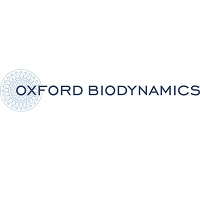Dr Alexandre Akoulitchev, Chief Scientific Officer of Oxford BioDynamics, commented:
“There have been many exciting breakthroughs in the immunotherapy of cancerous and non-cancerous hematologic diseases, including immune checkpoint inhibitors. However, questions of safety and efficacy present significant challenges, with a high demand for molecular biomarkers that may help to predict clinical outcomes.
Our aim is to develop and deliver non-invasive prognostic biomarkers in this fast developing and competitive field, and we were pleased to present strong data at this ASH Summit. Our EpiSwitch™ technology could stratify and predict which patients would not respond adequately to checkpoint inhibitor therapy, with high accuracy. We are very pleased with the interest our data have generated amongst the leaders in the field.
We believe that successful epigenetic stratifications of patients using EpiSwitch™ biomarkers could help improve understanding of the regulatory mechanisms in blood disorders, gain valuable insights into new targets and treatment designs, as well as help improve patients outcomes by supporting clinical decisions on the most appropriate and effective treatment option.”
Oxford BioDynamics Plc (LON:OBD), a biotechnology company focused on the discovery and development of epigenetic biomarkers based on regulatory genome architecture, for use within the pharmaceutical and biotechnology industry, has presented its latest EpiSwitch™ data in a plenary talk at the American Society of Hematology (ASH) Summit on Emerging Immunotherapies for Hematologic Diseases, 12-13 July 2018, Washington DC, entitled: “Chromosome Conformation Monitoring for Prognostic Stratifications of Non-responders to Cancer Immunotherapies: Deconvolution of Epigenetic data with EpiSwitch™.”
Dr Alexandre Akoulitchev, Chief Scientific Officer of Oxford BioDynamics, presented data on prognostic blood-based stratifications of patients with a common type of Non-Hodgkin lymphoma, and on predictive biomarkers for response to treatment with immune checkpoint inhibitors anti-PD-1 and anti-PD-L1. Data presented from several indications successfully demonstrated that EpiSwitch™ epigenetic biomarkers identified in patients’ blood could help identify patients that will not respond adequately to anti-PD-1 or anti-PD-L1 monotherapy. Based on further analysis of more than 126 patients, this validation study demonstrated 94% accuracy in predicting response to the anti-PD-L1 treatment.
Immunotherapy, particularly immune checkpoint inhibitor PD-1/PD-L1 treatments, is a type of therapy that harnesses a person’s immune system to fight cancer cells. Lymphomas represent a broad range of blood cancers based on diseases of white cells. While Hodgkin lymphomas show good response to immunotherapies, response and efficacy in other lymphomas remain modest at best. OBD is actively involved in the fast moving field of immunotherapy, with a number of proprietary and commercial studies based on immune checkpoint inhibitors, monotherapies and combination therapies, for a growing list of cancer types.
Through the development of epigenetic biomarkers, OBD’s EpiSwitch™ technology can help pharmaceutical and biotechnology companies bring drugs to the market sooner through personalising drugs to patients most likely to respond, delivering better clinical outcomes.

